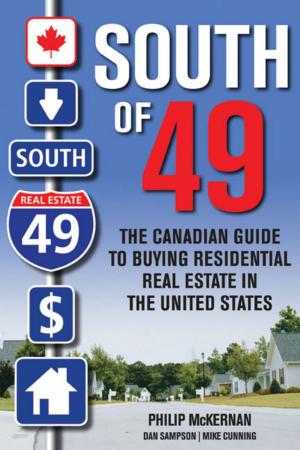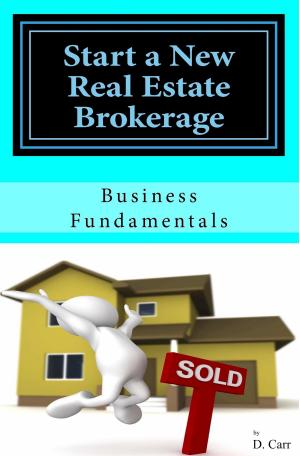How To Find & Keep Great Tenants: Premium Edition
Business & Finance, Finance & Investing, Real Estate| Author: | Jeffrey Roark, Jeff Rohde | ISBN: | 9781519979452 |
| Publisher: | Jeffrey Roark | Publication: | October 13, 2015 |
| Imprint: | Language: | English |
| Author: | Jeffrey Roark, Jeff Rohde |
| ISBN: | 9781519979452 |
| Publisher: | Jeffrey Roark |
| Publication: | October 13, 2015 |
| Imprint: | |
| Language: | English |
The Premium Edition of How To Find & Keep Great Tenants also includes the bonus book Investment Real Estate Analysis: A Case Study.
Here's an excerpt from How To Find & Keep Great Tenants:
If real estate is all about "Location, location, location", then finding & keeping tenants and managing the rental house to maximize its value is all about Marketing.
Over 25 years ago I received my real estate license, and from day one I was amazed at the number of businesses that feed off of the real estate broker!
Admittedly I've always been a little skeptical of the real estate industry, its associations and numerous designations, and the myriad of services that spring up to provide services to the industry.
The biggest mistake real estate marketers make is to provide too much up-front information about the house for rent. This happens because they do not have a specific objective for their marketing initiatives.
With advertising and marketing, it's important to closely track the ratio between dollars spent and income received as a direct result of each marketing channel.
From Investment Real Estate Analysis: A Case Study:
It's a well kept secret in buying investment real estate that you are almost always buying the seller's problem.
Think about it this way: If a property has good tenants, is for the most part trouble-free and is cash flowing, why on earth would the current owner want to sell? Sure, there are some legitimate reasons, but even those innocent sounding excuses for selling can hide a hidden agenda. It's safe to say that 99% of the time the new owner is going to face problems with their property purchase, probably sooner rather than later.
Now, the fact that problems may exist doesn't mean an investor shouldn't buy a property. For example, let's say the current use for a building is a multi-tenant office property with a high vacancy rate and you (as the buyer) want to turn it into offices for your business. Or an apartment building needs significant capital improvements, such as a roof repair or replacement of a majority of the HVAC units. Or a retail property sits very close to a school or to a church, a situation that current zoning laws may prohibit your leasing to certain types of tenants, thereby reducing the number of potential business types you can market your vacant retail suites to.
The key is to accurately identify the existing and potential problems, and the likely costs associated with solving those problems. In The Real Estate Property Management Guide I discuss all aspects of property management, including the steps to take when considering what type of investment property is right for you. After all, just because you can buy or finance an acquisition doesn't mean that you should actually invest in it.
In this book, Investment Real Estate Analysis: A Case Study, we drill-down on the specific analysis used by all professional investment real estate brokers and buyers to determine the strengths and weaknesses - and to identify the hidden opportunities - when deciding how to position a piece of real estate for sale.
The Premium Edition of How To Find & Keep Great Tenants also includes the bonus book Investment Real Estate Analysis: A Case Study.
Here's an excerpt from How To Find & Keep Great Tenants:
If real estate is all about "Location, location, location", then finding & keeping tenants and managing the rental house to maximize its value is all about Marketing.
Over 25 years ago I received my real estate license, and from day one I was amazed at the number of businesses that feed off of the real estate broker!
Admittedly I've always been a little skeptical of the real estate industry, its associations and numerous designations, and the myriad of services that spring up to provide services to the industry.
The biggest mistake real estate marketers make is to provide too much up-front information about the house for rent. This happens because they do not have a specific objective for their marketing initiatives.
With advertising and marketing, it's important to closely track the ratio between dollars spent and income received as a direct result of each marketing channel.
From Investment Real Estate Analysis: A Case Study:
It's a well kept secret in buying investment real estate that you are almost always buying the seller's problem.
Think about it this way: If a property has good tenants, is for the most part trouble-free and is cash flowing, why on earth would the current owner want to sell? Sure, there are some legitimate reasons, but even those innocent sounding excuses for selling can hide a hidden agenda. It's safe to say that 99% of the time the new owner is going to face problems with their property purchase, probably sooner rather than later.
Now, the fact that problems may exist doesn't mean an investor shouldn't buy a property. For example, let's say the current use for a building is a multi-tenant office property with a high vacancy rate and you (as the buyer) want to turn it into offices for your business. Or an apartment building needs significant capital improvements, such as a roof repair or replacement of a majority of the HVAC units. Or a retail property sits very close to a school or to a church, a situation that current zoning laws may prohibit your leasing to certain types of tenants, thereby reducing the number of potential business types you can market your vacant retail suites to.
The key is to accurately identify the existing and potential problems, and the likely costs associated with solving those problems. In The Real Estate Property Management Guide I discuss all aspects of property management, including the steps to take when considering what type of investment property is right for you. After all, just because you can buy or finance an acquisition doesn't mean that you should actually invest in it.
In this book, Investment Real Estate Analysis: A Case Study, we drill-down on the specific analysis used by all professional investment real estate brokers and buyers to determine the strengths and weaknesses - and to identify the hidden opportunities - when deciding how to position a piece of real estate for sale.















